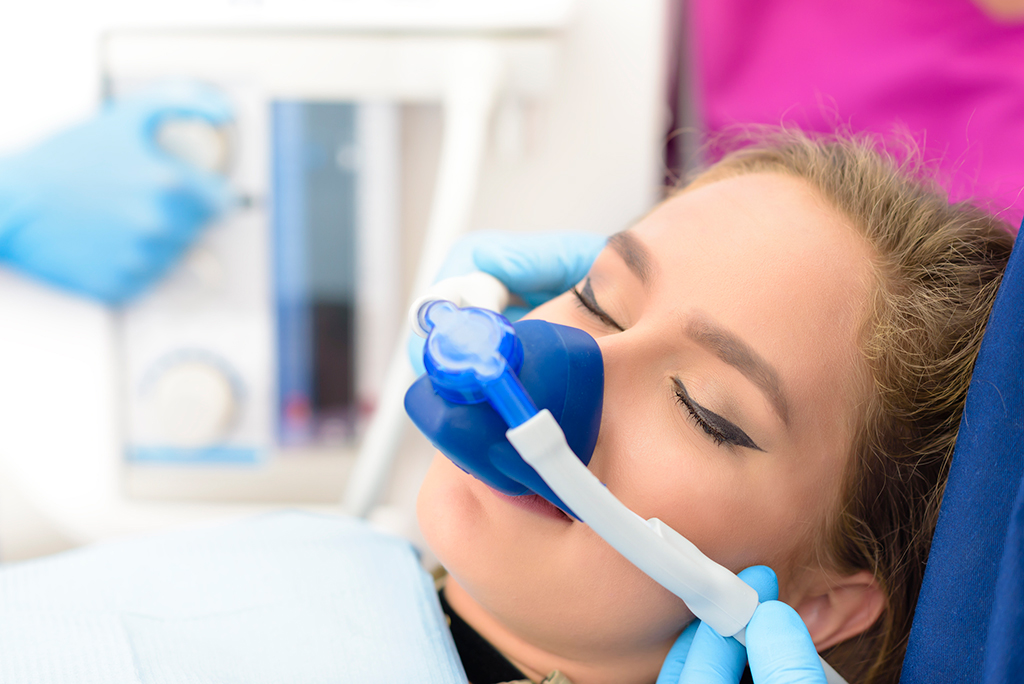
Nervous About Sedation? Here’s What You Need To Know From Your Oral Surgeon | Richardson, TX
Photo By oneblink-cj at istock
If you’re feeling anxious about your upcoming appointment with your oral surgeon, you’re not alone. Many people experience nervousness about the potential for pain during their oral procedure or surgery. Fortunately, your Richardson, TX, surgeon has various sedation options to ensure that you’re as comfortable as possible. On the other hand, some patients are actually nervous, instead, about the sedation process itself and may be apprehensive about certain types of sedatives. Here, we’ll discuss some common concerns in order to alleviate the anxiety about dental sedation.
Oral Surgery and Sedation Dentistry
Sedation makes many dental procedures such as wisdom teeth extraction a more comfortable experience. Although not all procedures performed by your Richardson, TX, oral surgeon will necessitate sedation, many would be far more difficult to tolerate without it. However, the nature of your procedure will inform your surgeon’s choice of sedatives. Before your surgery, your surgeon will discuss the procedure as well as any sedatives that may be involved. If you are anxious about being ‘put under’ during your procedure, tell the surgeon as there may be other options.
What Is Sedation Dentistry?
Oral surgeons rely on sedation to help patients remain calm and relaxed. With sedation, patients are conscious but are unlikely to remember much of anything of what happens during their surgery. In some cases—not often—a patient may require general anesthesia. Not only is sedation designed to enhance the patient’s comfort, but a calm patient is much easier for any surgeon to operate on. Some sedatives are stronger than others, of course. Oral sedation is common throughout the U.S. It can be delivered in numerous ways and is typically used in addition to a local anesthetic used to reduce pain.
What Sedatives Will My Oral Surgeon Use?
Today’s oral surgeons rely on different sedatives for their dental procedures. There are mild, moderate, and deep methods of sedation and then, of course, general anesthesia, which is usually only given to patients that aren’t suited for other forms of sedation. If this is the best course for you, your Richardson, TX surgeon will be able to explain why in reference to your specific case.
Mild Sedation
Mild sedation may involve what’s commonly known as “laughing gas” and is more formally known as nitrous oxide. This is a popular form of anesthesia that evokes a feeling of well-being. It works exceptionally well to quell feelings of anxiety. To deliver this sedative, the patient will wear a nose hood; the gas will be delivered before and during the procedure until it is completed. Patients may also be given pills to induce this state.
Moderate Sedation
During moderate sedation, patients will continue to breathe independently and even respond to verbal or physical stimulation. However, many people will feel like they’re asleep. Your surgeon can induce moderate sedation with oral medications or intravenous sedation. The benefit of intravenous injection is that it has an immediate effect of depressing consciousness, allowing the surgeon to get to work right away, knowing that the patient is comfortable. This form of sedation is often chosen for shorter procedures.
Deep Sedation
Most surgeons do not use deep sedation or very rarely. During deep sedation, patients may require some respiratory support. Like general anesthesia, this form of sedation is not typically needed for oral surgery procedures.
Which Form of Sedation Is Right for Me?
Your oral surgeon will discuss your procedure with you along with sedation recommendations. Your surgeon will need to know what medications you’re currently taking. Be prepared to discuss your medical history and any conditions you may have as that may impact your provider’s choice of sedative.
What Are the Benefits of Sedation Dentistry?
Sedation dentistry helps patients relax during their dental procedures. Along with treatments designed to reduce pain, sedation makes the surgical experience more tolerable for patients. In fact, even procedures that last hours may only feel to the patients as if they were a mere few minutes. Consequently, for extensive dental procedures, sedation is ideal. In fact, many procedures can be combined into one visit with the help of sedatives. Rebuilding procedures, for example, could require multiple visits; sedation may eliminate the need for so many separate dental appointments.
Many people are reluctant to schedule extensive procedures even though it can transform their oral health and smile for the better. With sedation, they may feel more inclined to have the dental work performed, knowing that they will remain comfortable and relaxed while their surgeon works.
Oral sedation is a safe process that oral surgeons perform on a routine basis. Yours has trained extensively in the administration of each type of sedation they offer. If you have questions about dental sedation, we can provide the information you need.
If you are going to have oral surgery that is accompanied by sedation, the staff will provide you with information you need to know before your appointment. For instance, you will need to have someone drive you home after your surgery because of the sedatives’ lingering effects that may impair your driving temporarily. While the sedatives will begin to wear off as you leave the dental office, it may take several hours—even a day—before their effects completely wear off and you feel like your old self again.
If you need dental work performed by an oral surgeon, visit NextGen OMS. We feature a comfortable setting staffed by friendly dental experts. If you are concerned about dental sedation, take time to discuss your fears with your oral surgeon. The better you understand the process of sedation, the less apprehensive you may feel.


